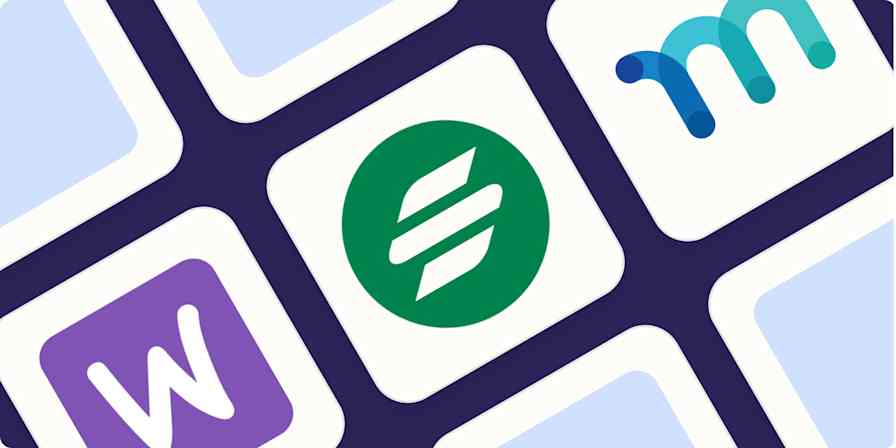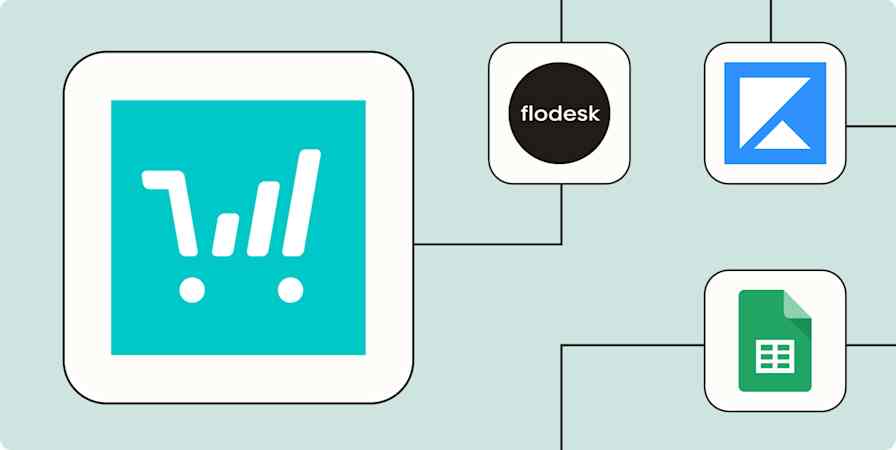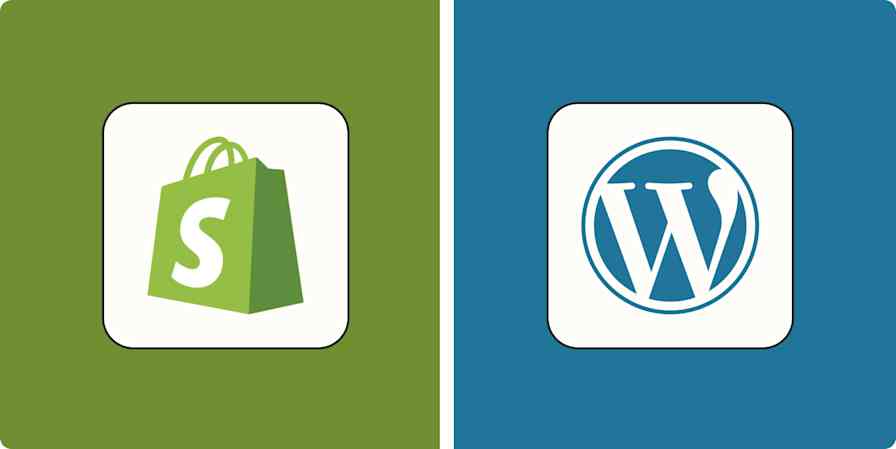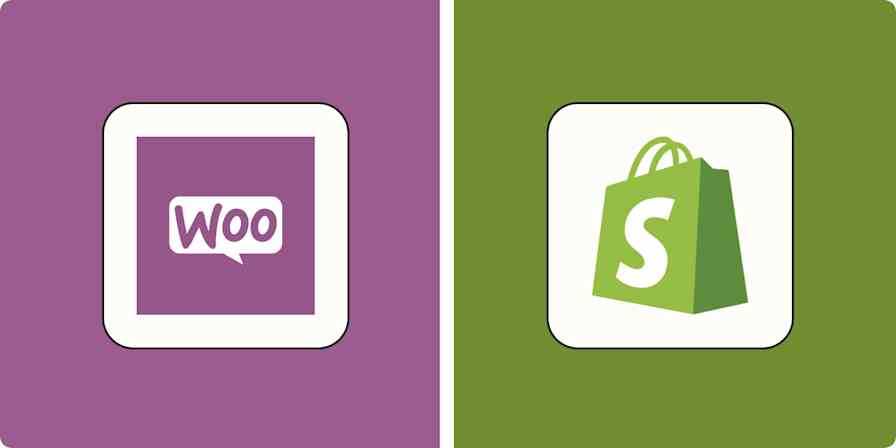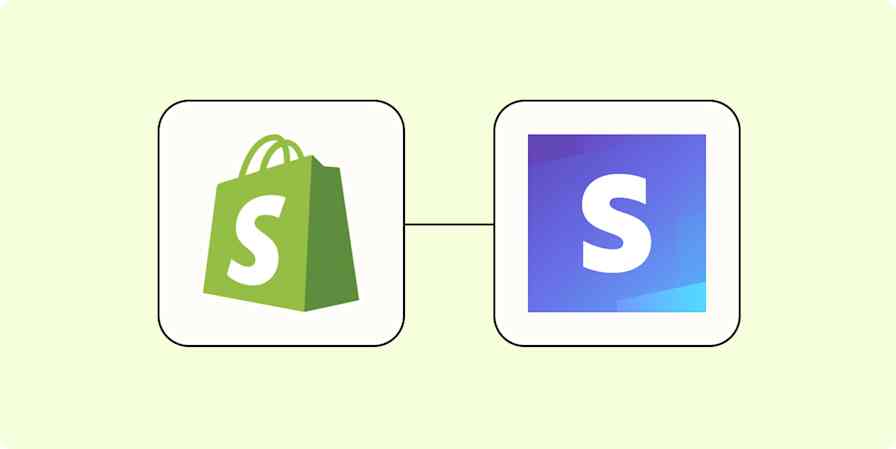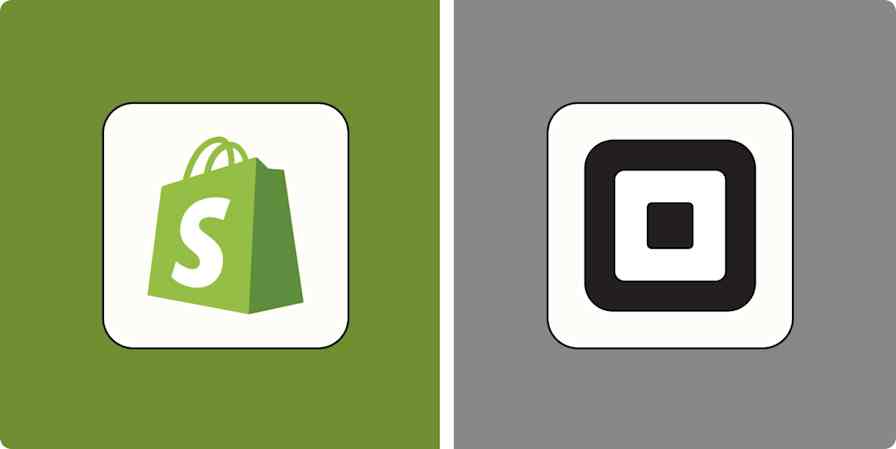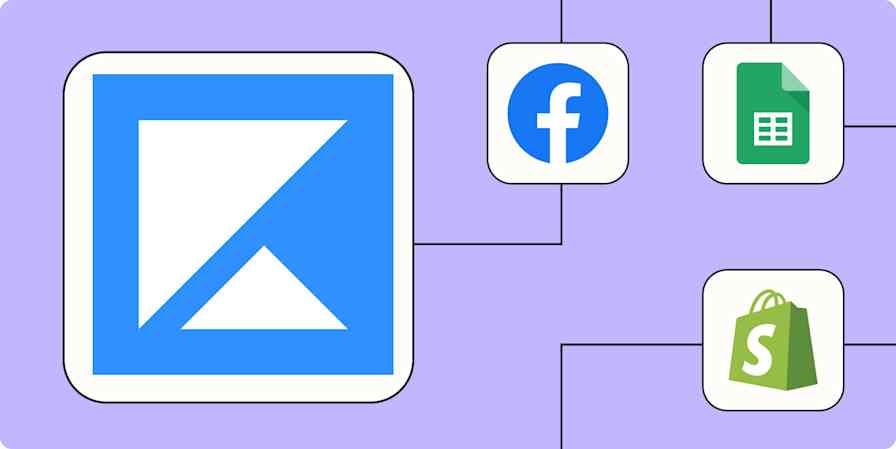Starting a new business already costs enough. By the time you've registered your business, bought the perfect domain name, and built up your inventory, you might not have much left in the budget for your eCommerce software. Plus, you're just starting out: do you really want to commit to paying for an eCommerce platform when you're not sure how your business will do?
Don't worry. There are a wide variety of ways to start an online store for free. There are the usual culprits, eBay and Amazon and other online marketplaces where you can list your products for free. But perhaps you want something more customized just for your own products.
You can get that, too, for the low price of free. After reviewing over 50 eCommerce platforms for The Ultimate Guide to eCommerce Software, these are the best free apps we found to start your store:
App | Icon: | Best for: | Free for: |
|
|---|---|---|---|---|
A fully customizable store inside a marketplace | 500 products |
| ||
A store that's quick and simple to set up and maintain | 5 products |
| ||
A full-featured eCommerce store | 5 products |
| ||
A store plus a website builder | 5 products |
| ||
A simple way to sell individual products | Unlimited products with 5% per-sale fee |
| ||
A store inside a social network | Unlimited products |
|
Tip: There is one extra thing you'll need to pay for, no matter which app you use to build your eCommerce store: a payment processor like PayPal or Stripe. These services won't charge you a monthly fee, but they will cost around 2.9% + 30¢ for each sale you make.
Storenvy
Best for a fully customizable store inside a marketplace
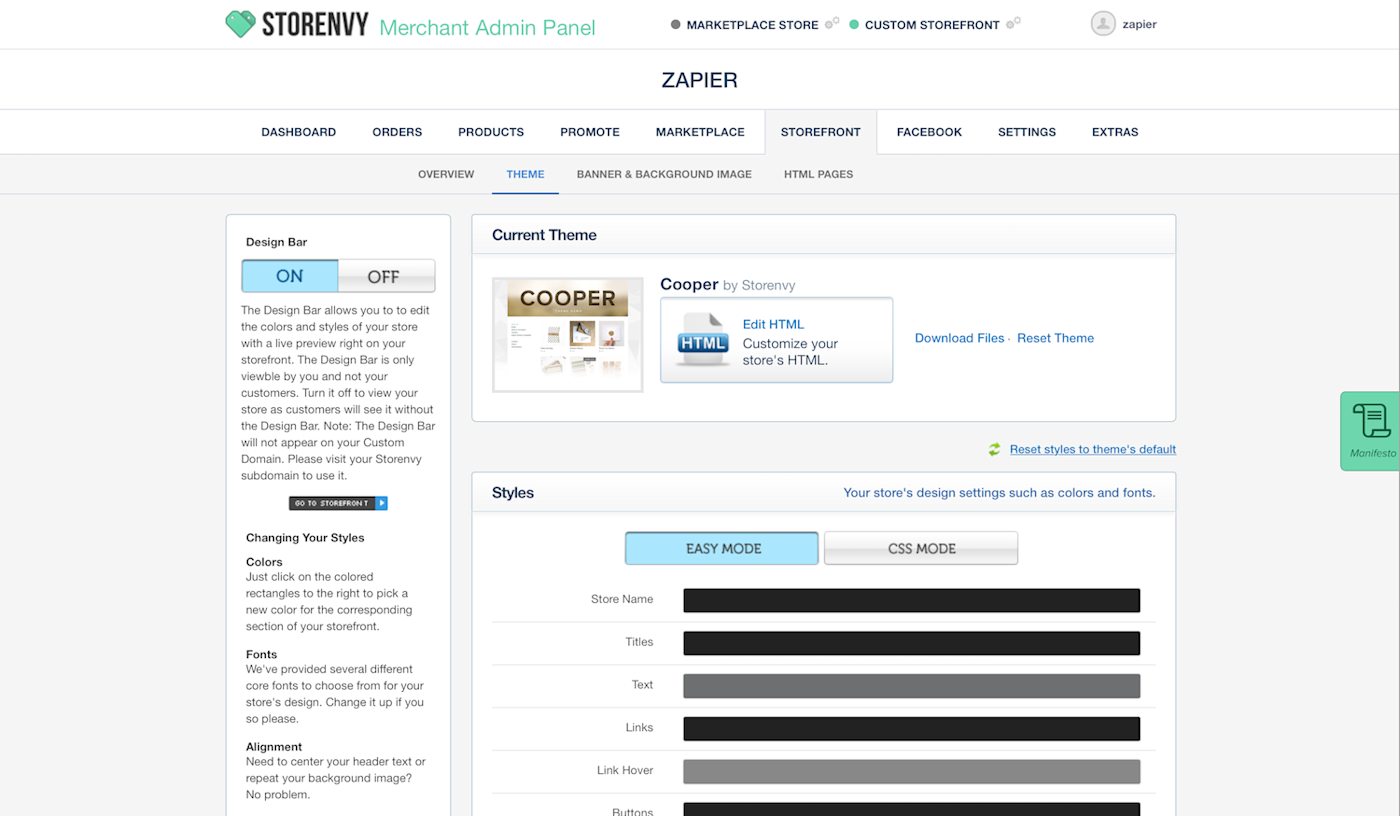
It's easy to want your own customized eCommerce store, so you can design it the way you want. But getting customers to visit your store can be tough—enough so that you'll be tempted to just list your products on Amazon or eBay and not worry about getting traffic to the store.
Storenvy gives you both, for free. It's a marketplace, somewhat like Amazon crossed with Etsy, and a store builder all in one. You can build your own customized store and list your products the way you want—even with your own domain name if you'd like. Then, to promote your products, Storenvy lets you also list each item you're selling on Storenvy's marketplace so people can discover them with a quick search.
You'll get to list far more products than most other free eCommerce apps allow, while also getting a wider audience for your products. Win-win.
Storenvy Pricing: Free for sales on your own store with up to 500 product listings; 10% transaction fee for sales on the Storenvy Marketplace
For a deeper look at features and pricing, see our Storenvy review .
See Storenvy integrations on Zapier
Selz
Best for store that's quick and simple to set up and maintain
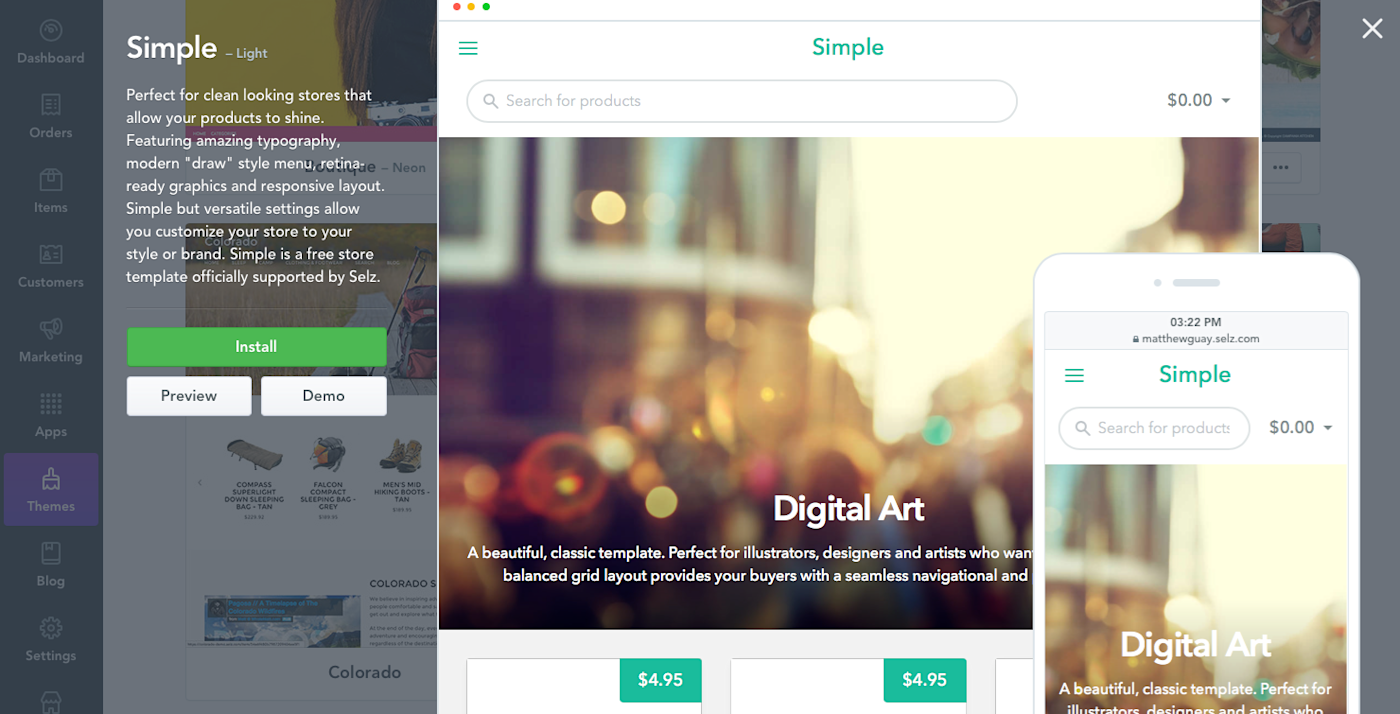
Want to make your products look great? Selz does that automatically.
With a selection of beautiful one-page store themes, your Selz store will make your product listings pop. It'll help you market them, too, with a built-in blog and tools to share your product listings on Facebook, Twitter, and Pinterest. And if you already have your own website, you can embed Selz into your existing site or blog for a great way to sell products to your audience.
Selz works for all types of products: physical goods, eBooks, and even streaming videos or software license codes. It's a simple way to get started selling anything you want online.
Selz Pricing: Free for 5 products; from $19.99/month plus 1% transaction fee Plus plan for unlimited products and main features including a shopping cart
Big Cartel
Best for a full-featured eCommerce store
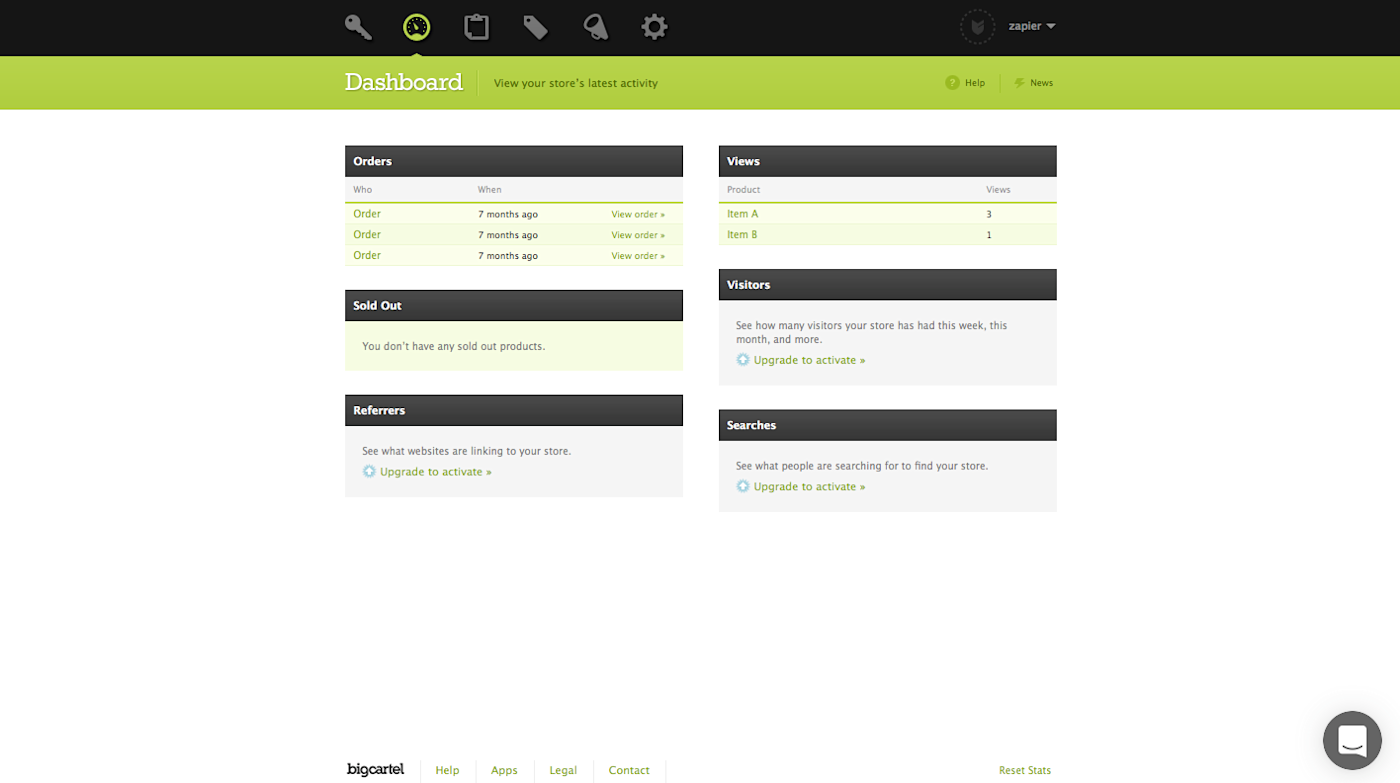
Big Cartel feels a bit more professional—and comes with the tools you need to nurture and grow your store into a full business.
Say you only have a few items of one product. Big Cartel can track inventory, marking in-stock items as active then showing a Sold Out banner on your product page when your inventory's gone. And if you're selling a lot of similar items, Big Cartel lets you set default pricing and shipping options to help you quickly add everything to your store.
But don't worry, it's not difficult to use. Big Cartel walks you through setting up your store with a checklist to make sure you don't forget anything. You'll get everything you need to market and sell your first 5 items—and can then upgrade as your store grows.
Big Cartel Pricing: Free Gold plan for stores with up to 5 products with core features; from $9.99/month Platinum plan for 25 products and full features.
For a deeper look at features and pricing, see our Big Cartel review .
See Big Cartel integrations on Zapier
Jimdo
Best for a store plus a website builder
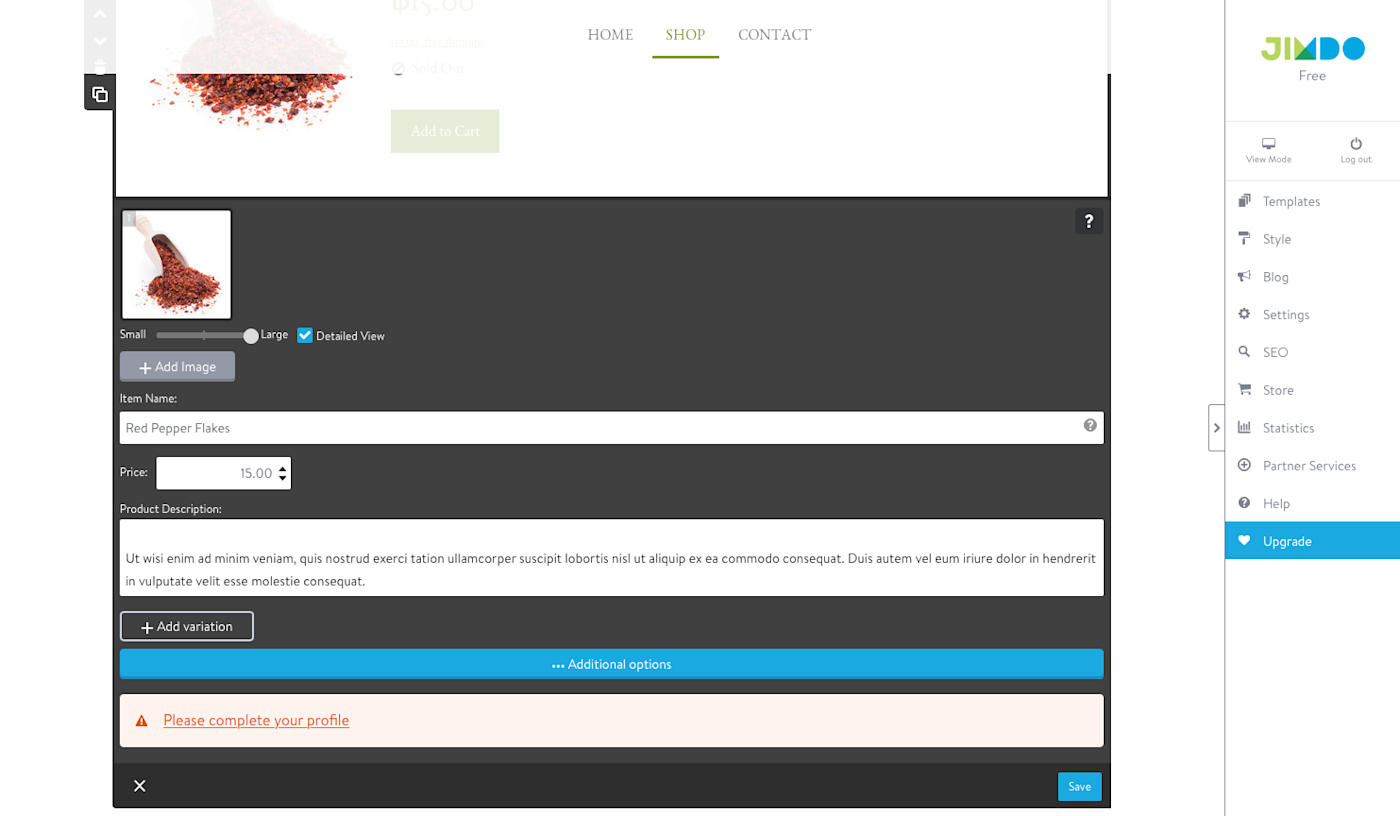
Need more than just a store—perhaps a full website that includes a store as well? Jimdo has what you want. It's an easy-to-use website builder that also lets you build an eCommerce store into your site.
You'll start out by selecting a site design and adding elements you want to the site's one-column design. You can add text, images, videos, and more in sections—or, choose a Product listing to add the first items to your store. There, you can add a preview image, price, and details about the product, then add more products to fill up your full store.
With its tools to tweak your site design, Jimdo will let you customize your store's design more than the other apps on this list. It'll let you build the shopping experience you want to market your products and convince people to add them to their cart.
Jimdo Pricing: Free for a branded store with core features; from $7.50/month JimdoPro plan for custom branding and no ads with annual billing
Gumroad
Best for a simple way to sell individual products
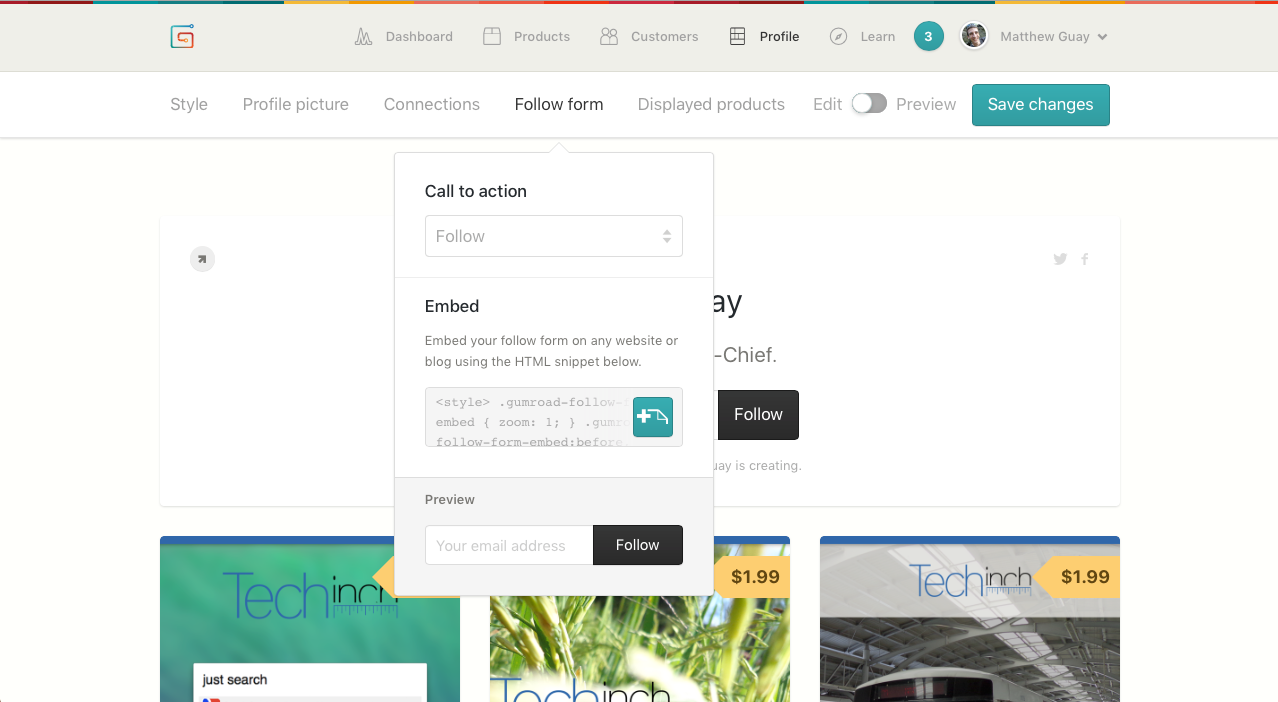
The simplest way to make a store, though, might be Gumroad. To list products for sale, just drag a photo of them into the Gumroad editor, add a description and price, and share the resulting Gumroad link. That'll let you list a single product for sale in a couple minutes flat anywhere you want.
For a full store, just repeat that process, adding each item you want to sell. Gumroad will put them together in your own simple store page, which you can customize with your profile picture and social media profiles—and, with paid plans, with a customized template. You can even market your products in Gumroad, using its free built-in email newsletter tool.
There's only one catch: Gumroad is the most expensive app in this list, charging 5% per sale on top of the standard payment processing fees. For that, though, you'll be able to list and sell as many products as you want—and you'll barely have to do any work to maintain your store. That's rather valuable in itself.
Gumroad Pricing: 8.5% + 30¢ per sale (including payment processing) Free account with basic features; $10/month plus 3.5% + 30¢ per sale with Premium account.
For a deeper look at features and pricing, see our .
See Gumroad integrations on Zapier
Facebook Pages
Best for a store inside the most popular social network
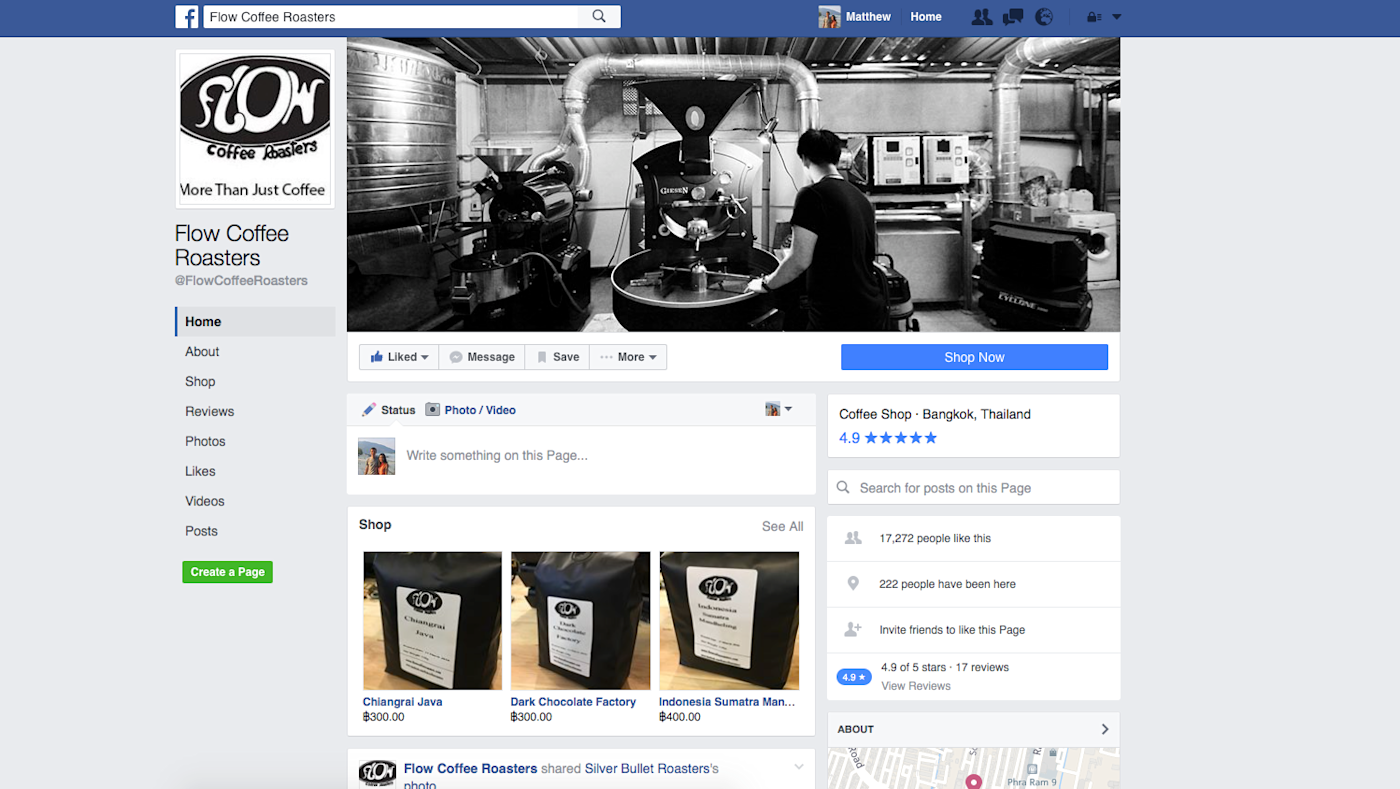
Facebook is a bit different from the other apps on this list, but it's hard to pass up a way to start a store for free on the largest social network.
To start a store on Facebook, you'll start by making a standard Facebook Page for your brand. Then, click the Shop tab in your page, and you'll add your business info and a payment processing account. You can then build out your Facebook Shop, adding photos and details of each of your products, and selling them directly to your fans right from Facebook.
You won't get your own store website, per se, but you will get a free store that's easy to run right inside Facebook.
Facebook Pages Pricing: Free, aside from payment processing fees, along with additional Facebook Ad fees to promote products if desired.
For a deeper look at features and pricing, see our Facebook Pages review .
See Facebook Pages integrations on Zapier
Self-Hosted Stores
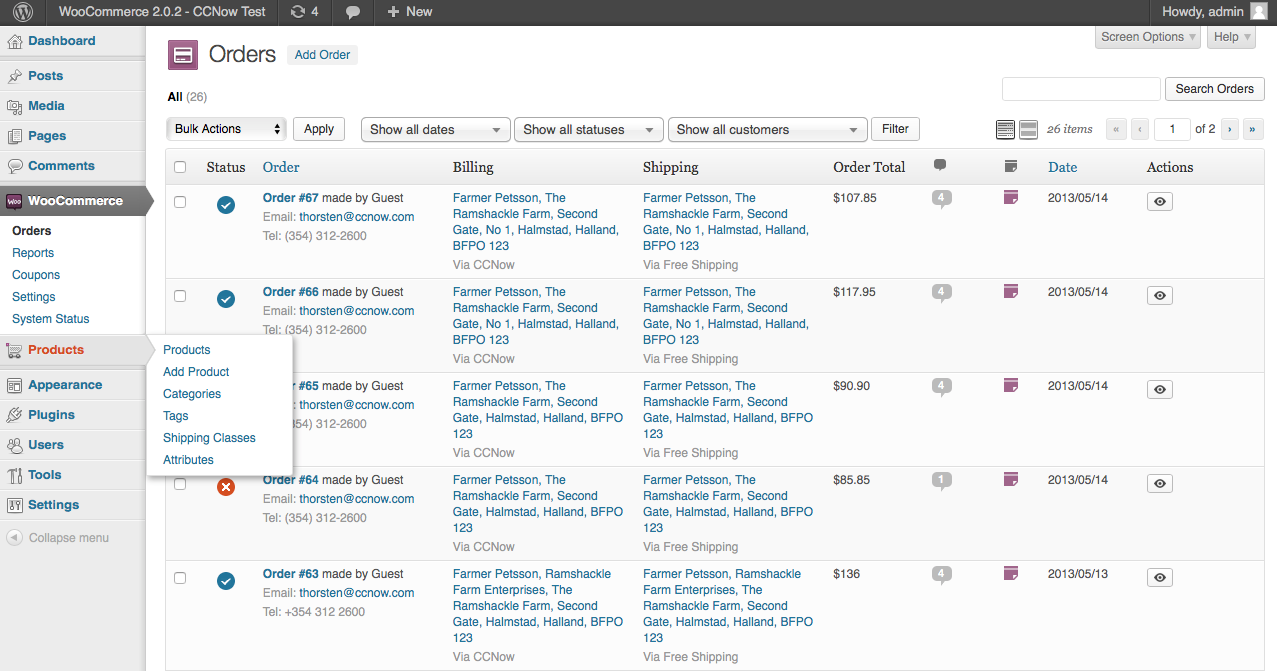
When you look for a free app to build an online store, self-hosted apps like WooCommerce and Magento are often the first to show up. And they can be a good option—but they will cost you a bit more to start your store and will take quite a bit more time to set up.
With free self-hosted eCommerce apps, you can run your store without having to buy software or pay for a monthly service. However, you will have to run the app on your own server or hosting account, which will likely cost at least $10-20 per month. And you'll need to take care of your own site security and maintenance, something you wouldn't need to worry about with a hosted eCommerce app like those above.
In return, you'll get a far more flexible eCommerce store that can be customized however you like. You can extend it with add-ons and extensions, hand-code your own themes, and more. It'll just take time and often money to get it there, but chances are you might want to invest in having your own website anyway.
Here are some of the best options:
WooCommerce is one of the most popular self-hosted eCommerce apps, and it's also one of the simplest to use. If you already have a self-hosted WordPress site, just install the WooCommerce plugin, and you'll get a full store right alongside your blog. See our WooCommerce review for more details.
Magento is a designed to make listing and promoting your products as simple as possible. It includes tools to help you promote related products, refresh your store design on a schedule, and send email newsletters from your store. See our Magento review for more details.
X-Cart is designed to keep your customers around. Visitors to your store can create an account, track info on their orders, and automatically find the best shipping option for their location. And, X-Cart can sync your listings to eBay to sell your products in a marketplace and on your own site.
Tip: Get more info about these and other eCommerce platforms in our roundup of The 20 Best eCommerce Platforms.
Form Stores
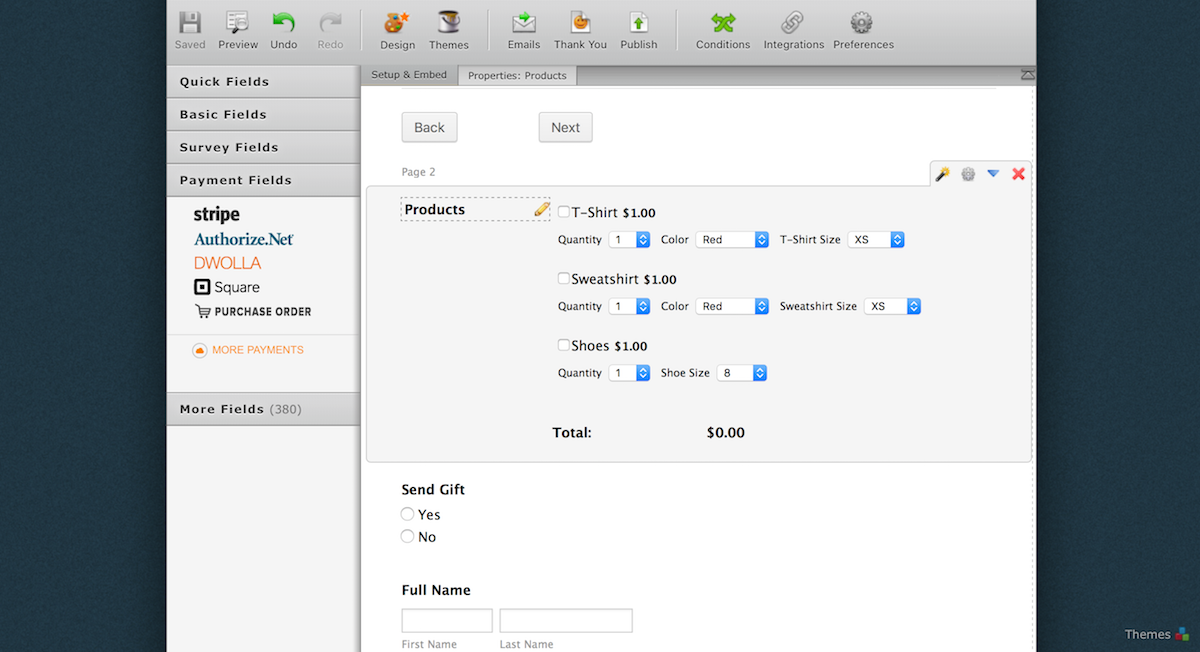
There is one other option: you could just build a form that accepts payments, and use it to sell individual products on your existing blog, website, or social media profile. That's one of the simplest ways to start a tiny store—and depending on your form app, it can be free too.
Most online form builder apps include a payment field, letting you accept payments from PayPal, Stripe, and more. And if your form builder app doesn't include a payment field, you can make a payment link in PayPal, and redirect your customers from the form to PayPal after they fill out your form.
Just add the order info you need to the form, such as item size or color, shipping address, and anything else you might need. Then, add a payment field, and, just like that, your form's a tiny store. You can then share the form link directly or embed it into your existing blog or website for an inexpensive way to sell anything online.
Here are the best free form apps for that:
JotForm is a full-featured form builder that lets you start building your forms without even signing up for an account. And, it lets you accept up to 10 payments each month with a free account. Read our JotForm review.
Cognito Forms is designed for payments with detailed calculated fields and a generous free account that lets you accept 500 payments per month with a 1% fee on each payment collected. Read our Cognito Forms review.
Google Forms is perhaps the most powerful free form app—but it doesn't include payment fields. But, if you add a PayPal link to the end of your form, you can hack it to work as a simple store. Read our tutorial on Google Forms.
Tip: Learn How to Accept Payments in a Form.
Take Your New Store Further
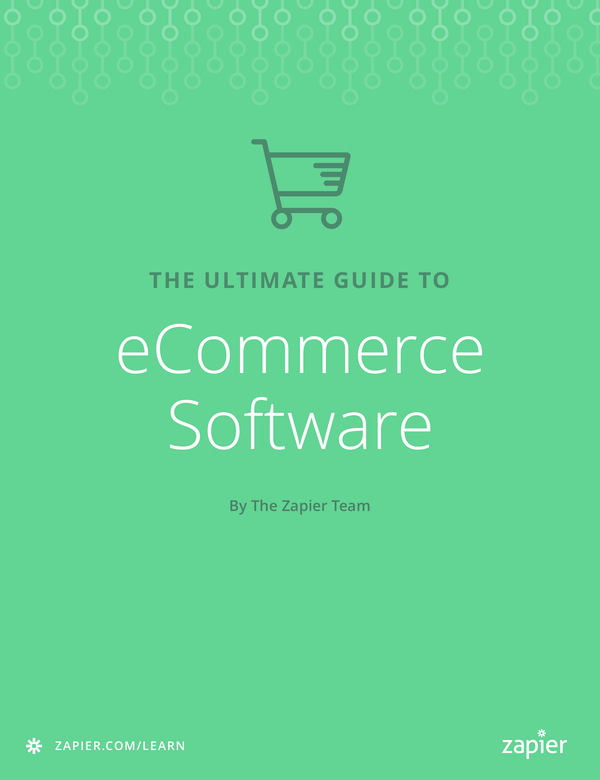
There's more to eCommerce than just starting a store. You'll also need to start a business, with all the complications and legal hassles that go along with that. And your business won't run itself. You'll also need tools to manage your shipping and postage, accounting tools to keep your finances in order, and workflows to keep all your data in sync.
We've got you covered. In Zapier's Ultimate Guide to eCommerce Software, you'll learn everything you need to start and run your online business. From detailed walkthroughs of how to set up your store to additional info on the best eCommerce and payment apps—including those listed in this article—it's the resource you need to keep your store running smoothly.
Online store photo by SplitShire via Pexels.







